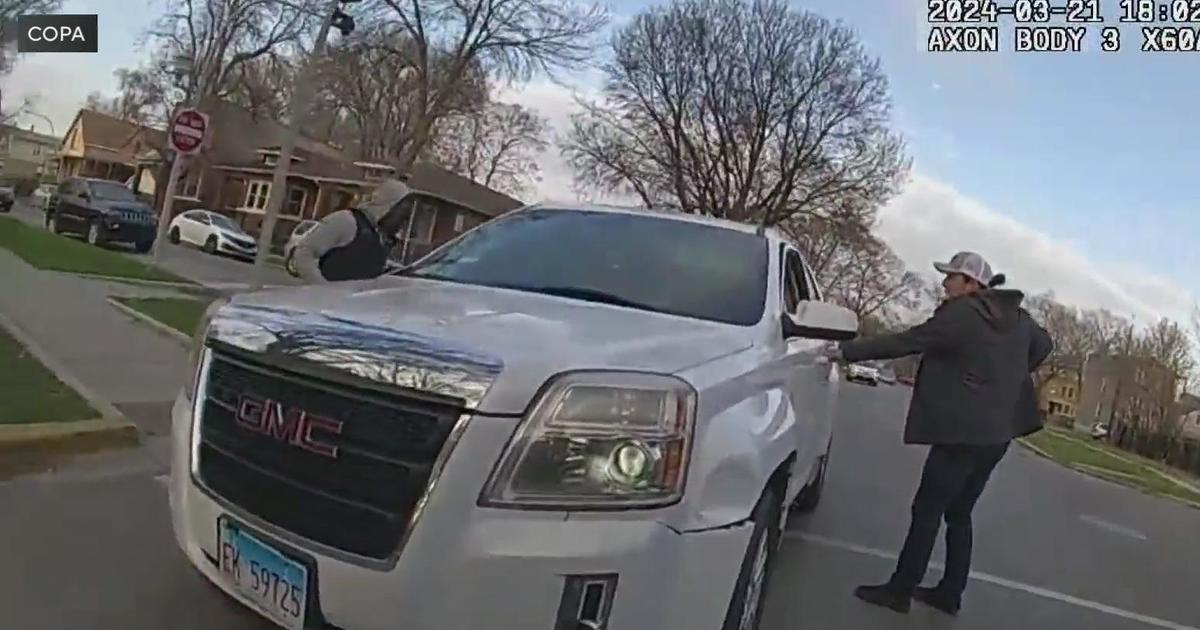Disgraced Ex-CPD Commander Jon Burge Dies; Was Linked To Dozens Of Torture Cases
CHICAGO (CBS) -- Jon Burge, the infamous former Chicago Police commander who served a 4 ½-year sentence for lying about the torture of criminal suspects, has died at age 70.
The Chicago Fraternal Order of Police, the union representing rank-and-file Chicago police officers, offered its condolences in a Facebook post.
"The Fraternal Order of Police does not believe the full story about the Burge cases has ever been told, particularly the case that led to his sole conviction, the exoneration of Madison Hobley for an arson that killed seven people. Hopefully, that story will be told in the coming years. We offer our condolences to the Burge family," the FOP stated.
Sarah Zipperer of the Zipperer Funeral Home, in Ruskin, Fla., confirmed that they had received Burge's body. The cause of death was not known. Burge had been living in Florida for several years.
CBS Chicago has reached out to Burge's attorney in Chicago for comment.
Burge's name has become synonymous with police brutality and the torture of innocent suspects for decades in Chicago. More than 100 suspects – almost all of them black men -- claimed Burge and his officers tortured them into falsely confessing to crimes ranging from armed robbery to murder.
Former police union president Dean Angelo said Burge "put a lot of bad guys in prison that belonged to be there."
"You know, people picked a career apart that was considered for a long time to be an honorable career and a very effective career," Angelo told reporters at the courthouse covering the murder trial of Chicago officer Jason Van Dyke.
Burge, who was a detective in Area 2 on the South Side in the 1970s, and was commander of the Area 2 Violent Crimes Unit in the early 1980s, was fired from the Police Department in 1993, after a police review board ruled he had tortured suspect Andrew Wilson, who said Burge shocked him on his genitals and back.
While more than 100 people eventually accused Burge and officers under his command of using electric shocks, suffocations, and beatings in order to coerce them into providing false confessions, Burge was never charged with torture.
However, in 2010, he was convicted of lying about torture in testimony he provided for a civil case. Burge was convicted of perjury and obstruction of for lying in a civil suit when he denied committing or witnessing torture.
During his trial, witnesses described Burge and his detectives subjecting them to electric shocks, beatings, suffocations, and games of Russian roulette in order to obtain confessions.
Victims have said the torture started in the 1970s and persisted until the 1990s at police stations on the city's South and West sides.
One of Burge's alleged victims, Anthony Holmes, was tortured with electrical shock in 1973.
"I felt electricity go through my body and I fell out of the chair onto the floor," Holmes said.
Darrell Cannon, another alleged torture victim, said in court in 2015 that Burge and other officers seemed to enjoy torturing people.
Burge repeatedly denied ever participating in physical abuse, or witnessing any during his 28 years with the Chicago Police Department. He served most of his prison sentence in a federal facility in North Carolina, before being transferred to a Florida halfway house.
Three years ago, the city set up a $5.5 million fund to provide reparations to victims of police torture who had not received any previous settlements from the city.
According to published reports, the city has paid about $120 million to settle dozens of lawsuits filed against the Police Department, alleging torture and abuse at the hands of Burge and the officers under his command.
Allegations of torture and coerced confessions prompted then-Gov. George Ryan in 2003 to pardon four men sentenced to death, after Ryan said Burge had extracted false confessions using torture. Ryan also imposed a moratorium on executions in Illinois, and commuted the sentences of every other Death Row inmate in Illinois. The state abolished the death penalty in 2011.
Jesse Jackson offered condolences to Burge's family.
"As a person, may his soul rest in peace," Jackson said. "As a policeman he did a lot of harm to a lot of people."
CBS 2's Mai Martinez and Dana Kozlov contributed to this report.



